Timeout¶
See also
- Official ReactiveX documentation: Timeout
-
Observable.timeout(duetime, other=None, scheduler=None)¶ Returns the source observable sequence or the other observable sequence if duetime elapses.
Example:
from datetime import datetime # As a date res = source.timeout(datetime.now()) # 5 seconds (5000 milliseconds) res = source.timeout(5000); # 5 seconds # As a date and timeout observable res = source.timeout(datetime.now(), rx.Observable.return_value(42)) # 5 seconds and timeout observable res = source.timeout(5000, rx.Observable.return_value(42)) # As a date and timeout observable res = source.timeout(datetime.now(), rx.Observable.return_value(42), rx.Scheduler.timeout) # 5 seconds and timeout observable res = source.timeout(5000, rx.Observable.return_value(42), rx.Scheduler.timeout)
Keyword Arguments: - duetime (int, datetime.datetime) – Absolute (specified as a
datetime.datetimeobject) or relative time (specified as an integer denoting milliseconds) when a timeout occurs. - other (Observable) – Sequence to return in case of a timeout. If not specified, a timeout error throwing sequence will be used.
- scheduler (Scheduler) – Scheduler to run the timeout timers on. If not specified, the timeout scheduler is used.
Returns: The source sequence switching to the other sequence in case of a timeout.
Return type: (Observable)
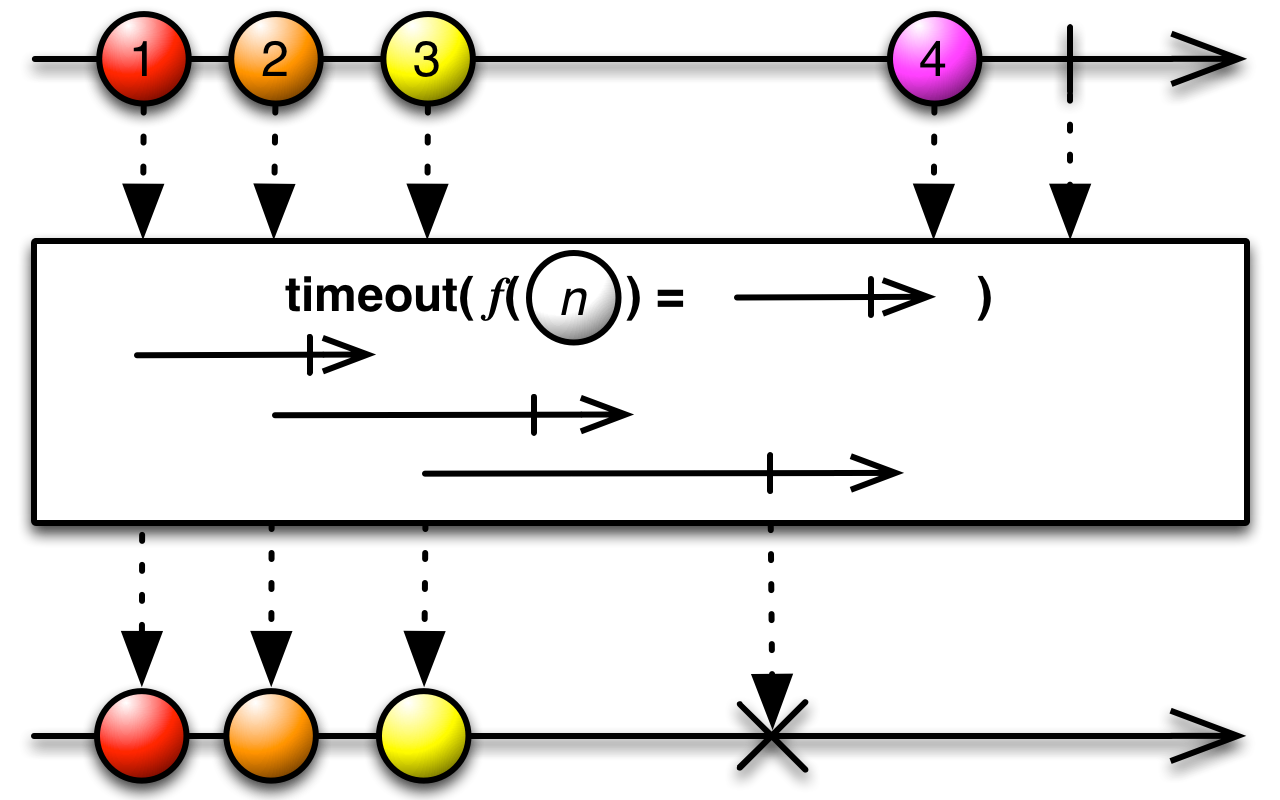
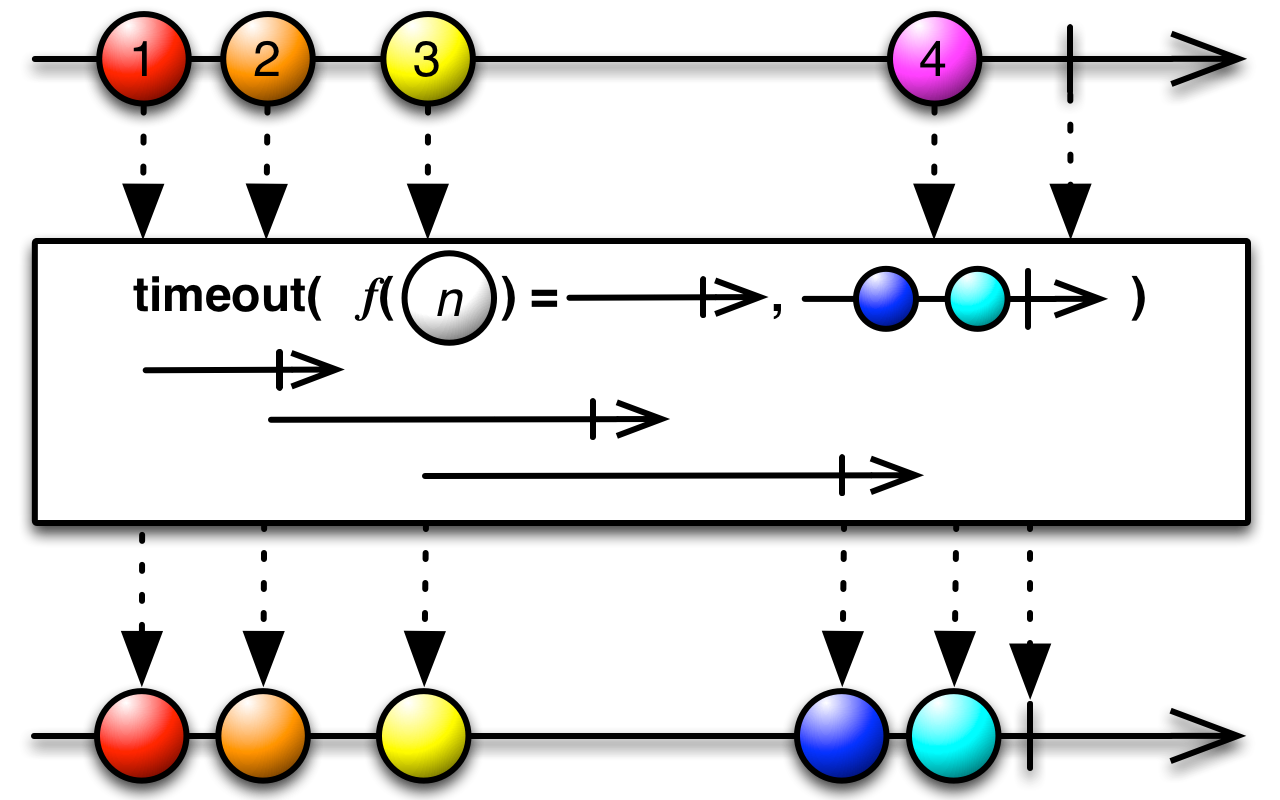
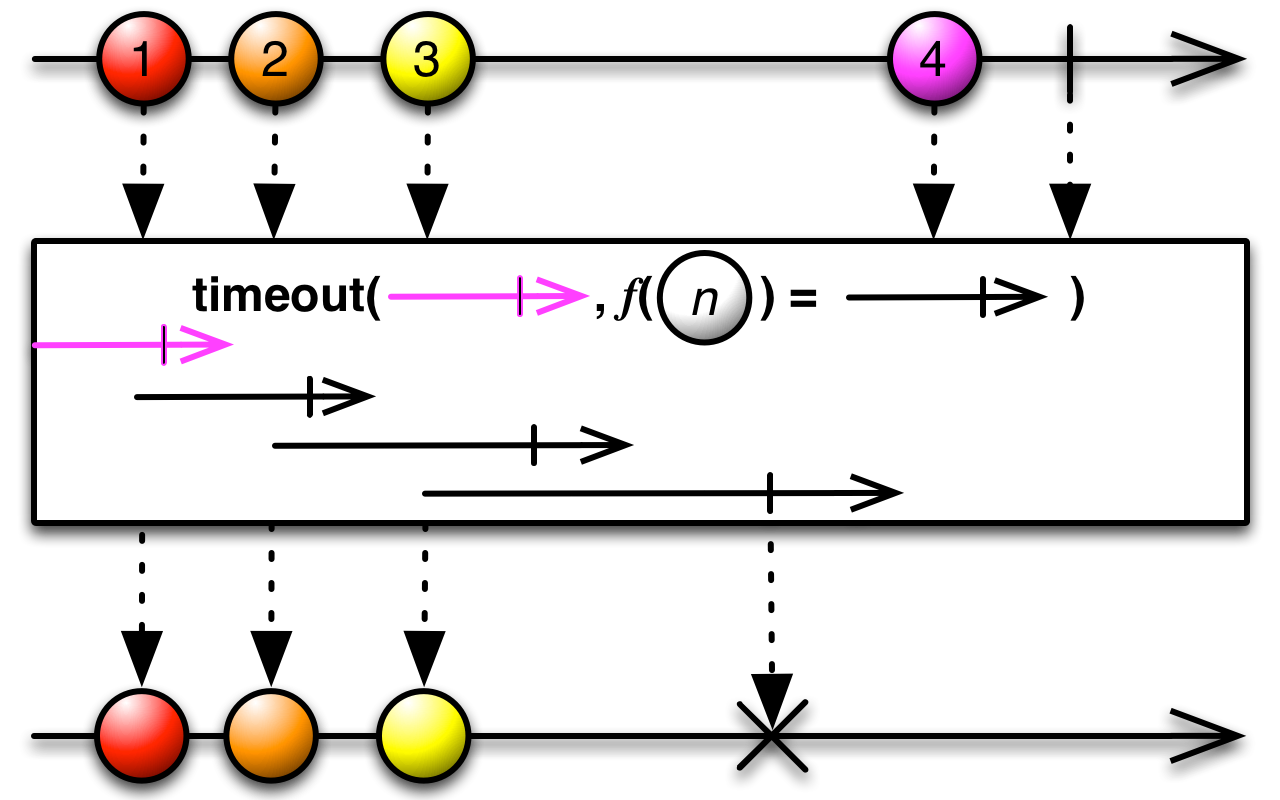
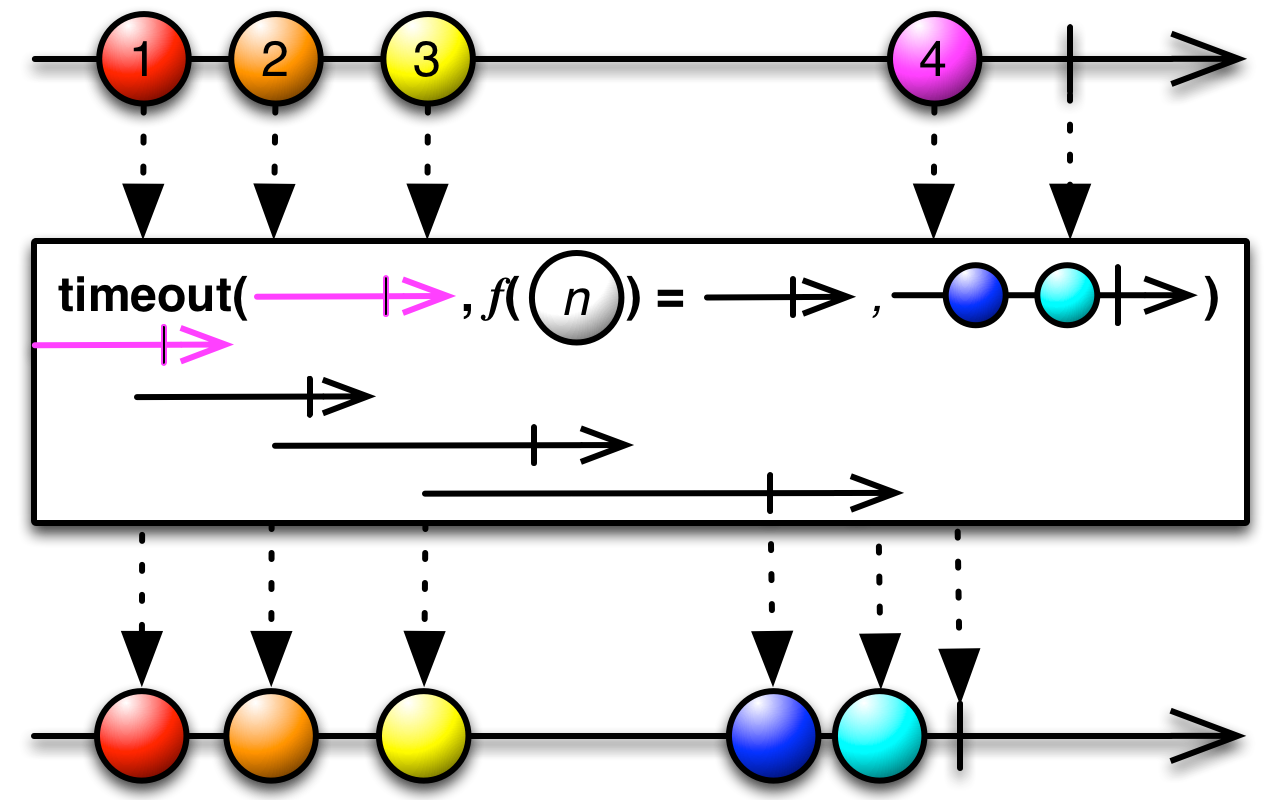
- duetime (int, datetime.datetime) – Absolute (specified as a
-
Observable.timeout_with_selector(first_timeout=None, timeout_duration_selector=None, other=None)¶ Returns the source observable sequence, switching to the other observable sequence if a timeout is signaled.
Examples:
res = source.timeout_with_selector(rx.Observable.timer(500)) res = source.timeout_with_selector(rx.Observable.timer(500), lambda x: rx.Observable.timer(200)) res = source.timeout_with_selector(rx.Observable.timer(500), lambda x: rx.Observable.timer(200)), rx.Observable.return_value(42))
Keyword Arguments: - first_timeout (Observable) – Observable sequence that represents the
timeout for the first element. If not provided, this defaults to
Observable.never(). - timeout_duration_selector – Selector to retrieve an observable sequence that represents the timeout between the current element and the next element.
- other – Sequence to return in case of a timeout. If not
provided, this is set to
Observable.throw_exception().
Returns: Returns the source sequence switching to the other sequence in case of a timeout.
Return type: (Observable)
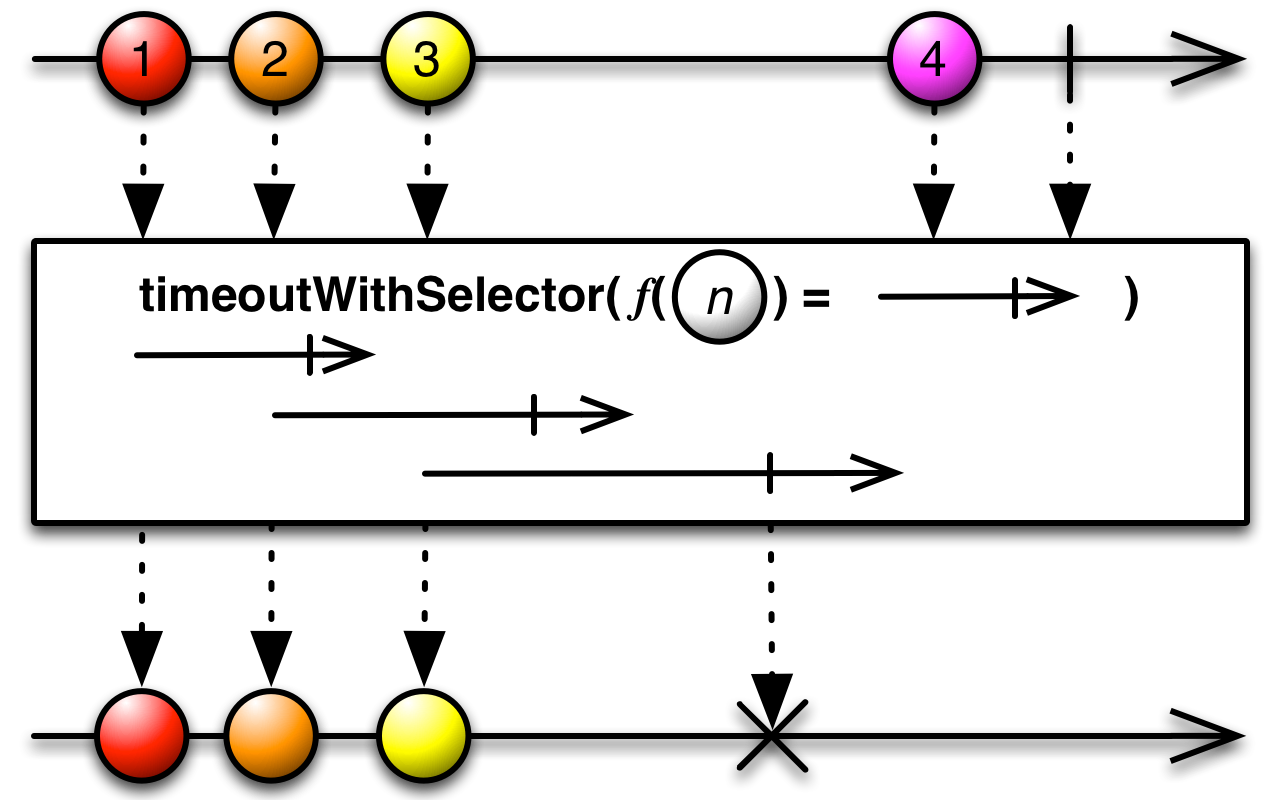
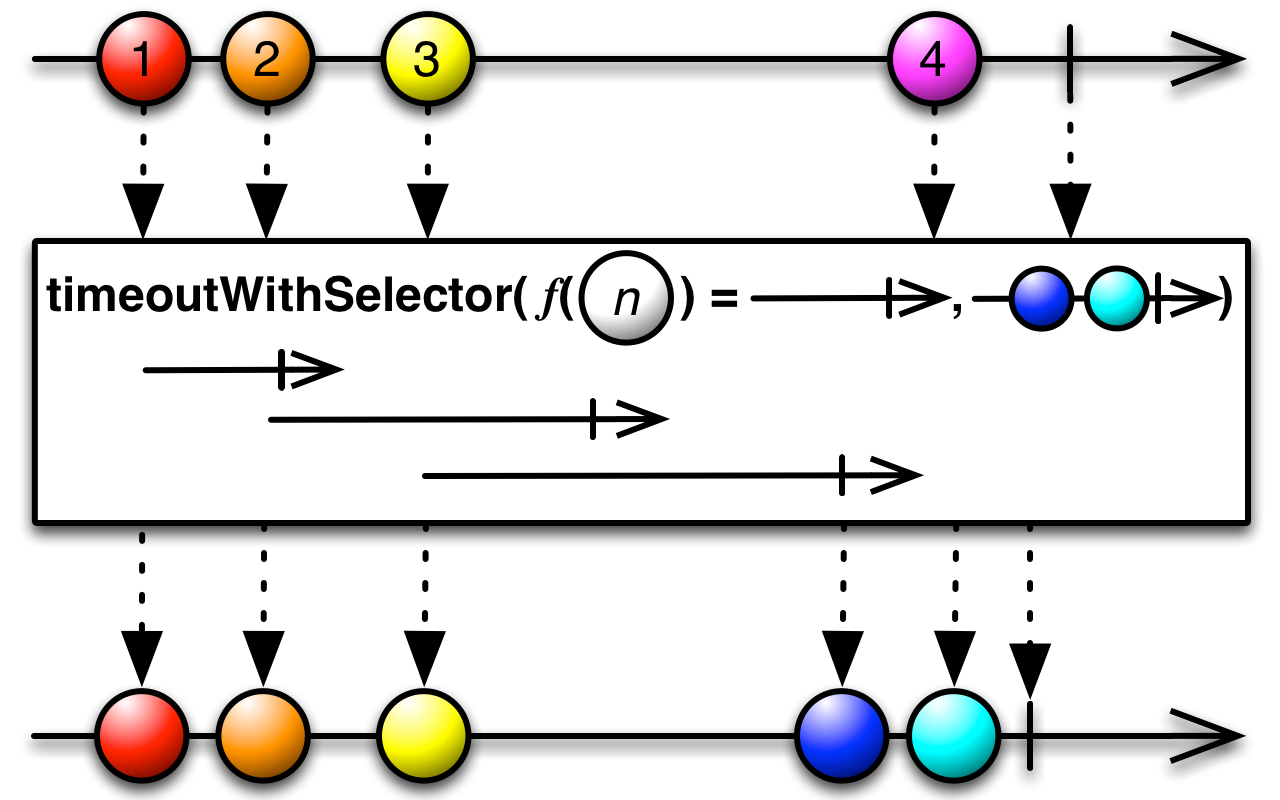
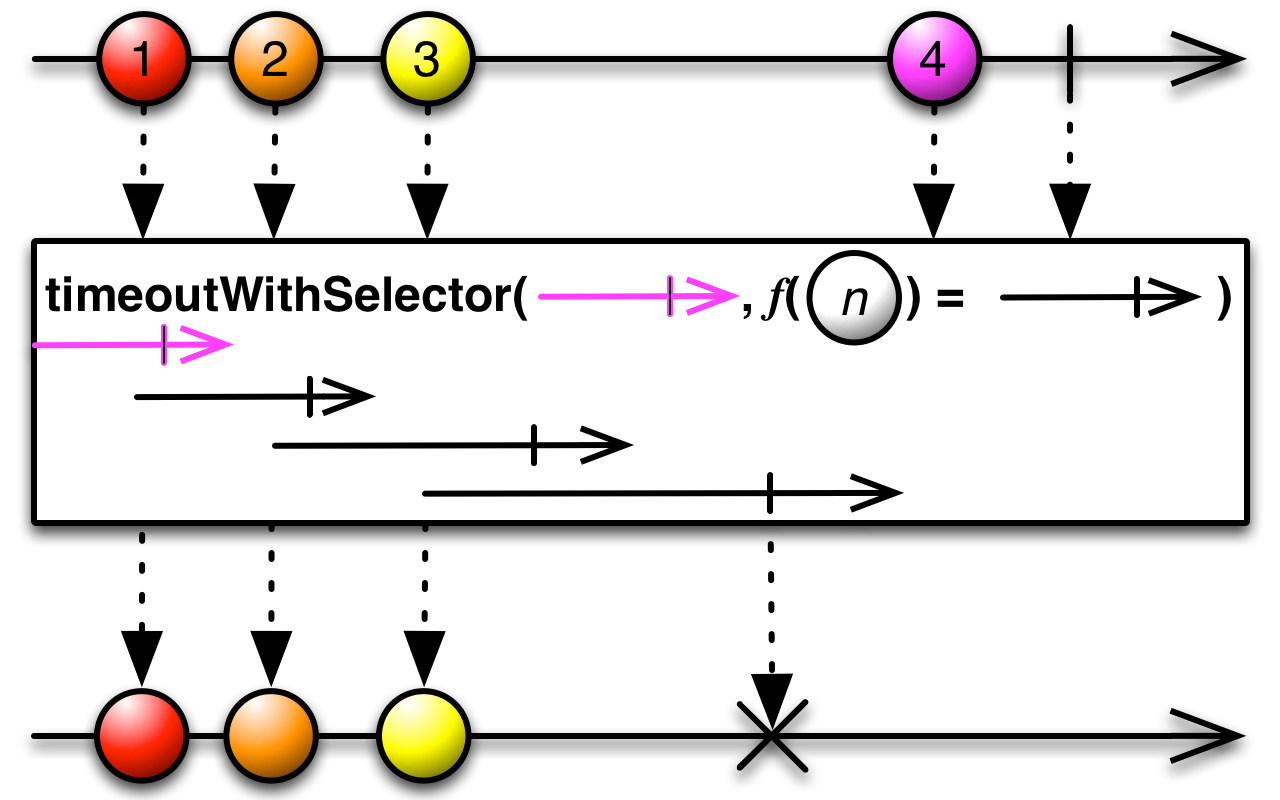
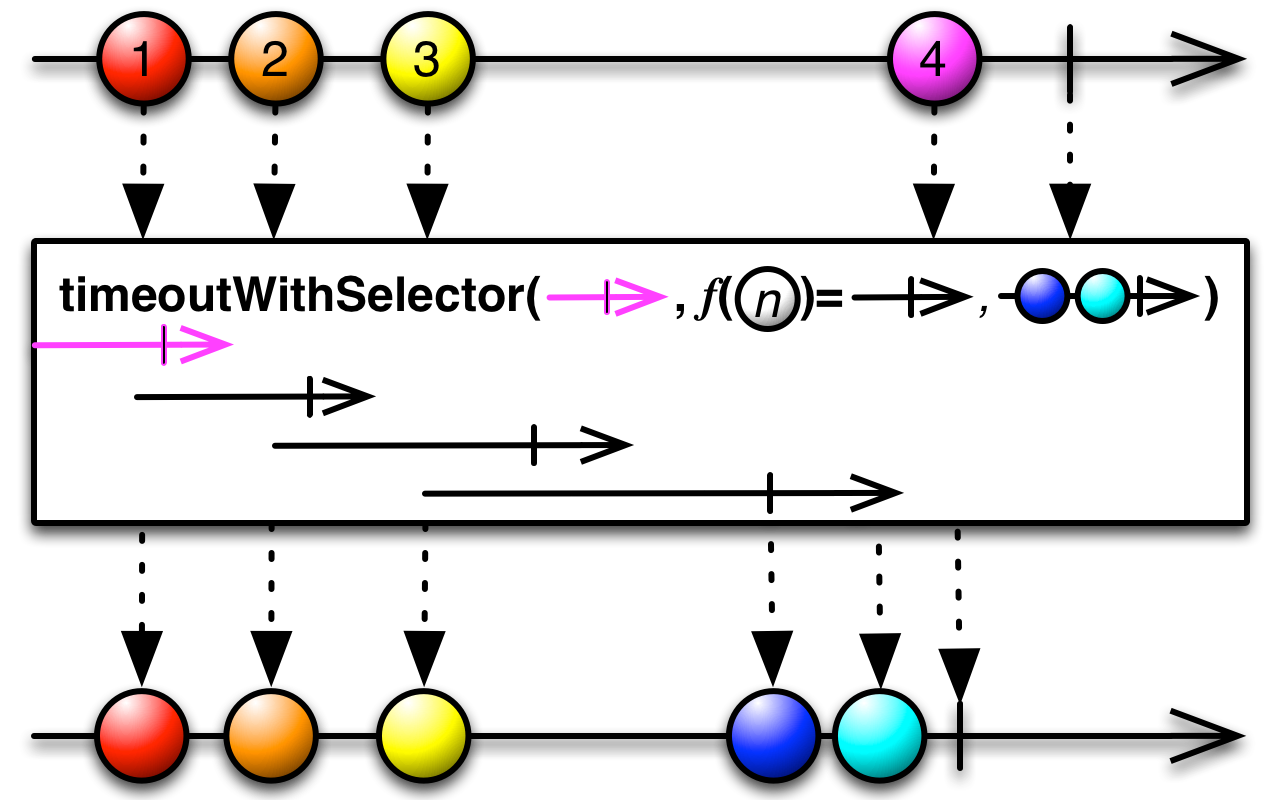
- first_timeout (Observable) – Observable sequence that represents the
timeout for the first element. If not provided, this defaults to